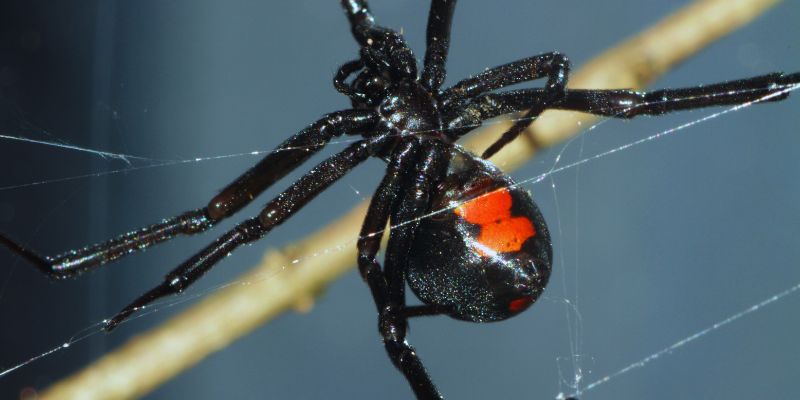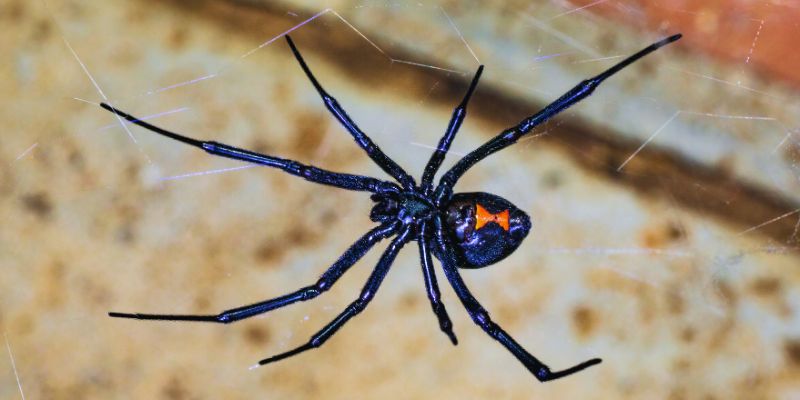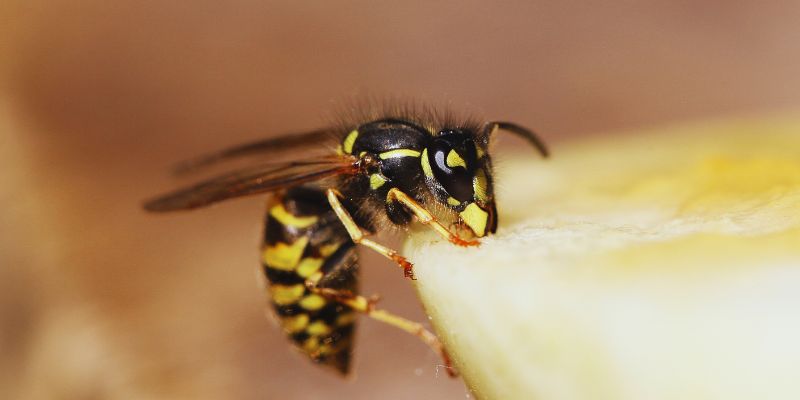How to Treat a Black Widow Bite Effectively: A Comprehensive Guide
You might ignore spider bites and not take them seriously, but a spider bite, especially a black widow bite, can be as dangerous as death. That’s because the venom of the black widow spider can badly affect different organs. The symptoms of the bite can be mild, like fever, chills, and headache, to severe, including paralysis, tetanus, necrosis, and even death.
So, the widow bite must be treated in time. Otherwise, you may suffer from serious illness afterward. The first aid includes cleaning the bite, washing it with soap, and applying a cool compress. But, if the condition gets serious, you should see a doctor who will prescribe you antivenoms, antihistamines or antibiotics, and some painkillers. Keep reading to learn more about black widow bites and how to treat this condition!

What is a Black Widow Spider?
A black widow is a spider with eight legs and a shiny black body. Female black widow spiders have hourglass-like shapes and are more dangerous and bigger than male black widows. You might think that is why they are called 'black widows. The name comes from a myth that these female spiders eat up the males; they are called widows. But in reality, this happens rarely. Black widows primarily live in warm and dry regions. They prefer living outside and building webs in fences and garages.
You can also find them in the garbage, gardening equipment, and dark places like inside shoes and piles of blankets. They are talked about a lot because of the fatal venom they release. The venom is considered to be fifteen times stronger than that of the rattlesnakes. Now you know why it is feared so much, right? So, the next time you sit in your garden or go out on a walk, you should watch for that black spider. But remember that these spiders can attack you anytime, anywhere, so be careful!

What Happens When a Black Widow Bites You?
The common symptoms of a black widow bite include pain, chills, fever, nausea, vomiting, sweating, headache, high blood pressure, and weakness. These symptoms appear within 30 minutes to one hour. Besides that, you can witness small red marks at the site where the spider bites you. You will also experience mild swelling and redness or an itchy rash. It is also possible that the skin appears bluish-grey, known as cyanosis. You don't have to worry about these symptoms as they are mild, and you can easily treat them.
Though it is rare, in some cases, black widow bites can be fatal. For example, when a black widow bites you, it releases neurotoxins. These neurotoxins contain venom that can damage the nervous system. You will feel a sharp pain and slight numbness. The venom of the black widow can also interfere with your nerve endings and the chemicals present there. That’s why the patients feel stiffness and muscle spasms. Old and young people and those with immunocompromised immune systems are more prone to develop serious complications after a black widow bite. Sometimes, a black widow bite can also lead to medical complications and result in anaphylaxis, muscle spasms, nervous dysfunction, paralysis, tetanus, necrosis, systemic toxicity, and death. To avoid such conditions, seeking medical aid as soon as possible is crucial!
Black Widow Bite: Treatment and Recovery
The ideal treatment for a black widow bite is antivenom, also called antivenin. Antivenin inactivates the toxins present in the black widow venom. The initial treatment should include cleaning and washing the wound with soap and water. Apply a cool compress to the wound for 10-15 minutes every other hour. You can do this with a clean cloth or towel filled with ice. It will also decrease the swelling and pain. Resting and drinking plenty of water are recommended to speed up recovery.
Remember that applying hydrogen peroxide can slow the healing process. Covering the bite area with a layer of Vaseline and a bandage and promptly replacing it is better. Oral medications are also used for pain relief. If you are suffering from severe pain, opioids and benzodiazepines are recommended. Even after the first aid, you should observe if the symptoms worsen or if there is an infection. See your doctor for proper medical advice and treatment if you see any signs.
Natural Remedies for Black Widow Bite
Other than ointments and medication, some natural remedies work best for black widow bites. Another plus is that these remedies also assure you a speedy recovery. So, let's get to know a few of them in detail here.
Aloe Vera: Whenever it comes to natural remedies, aloe vera gel is the first thing that comes to mind, as it has countless benefits. It not only soothes the skin but also heals the bite quickly.
Essential Oils: In addition to aloe vera, essential oils are helpful for healing and pain. It is better to apply essential oils with carrier oils, such as lavender, rose, bergamot, and chamomile. But remember that these work not only for pain and wounds but also reduce irritation and swelling.
Conclusion:
Ever got a spider bite but don’t know what to do? If so, you must be careful next time, as a black widow bite can be fatal. Yes, you heard it right. First, you should prevent spider bites when sitting or hanging out as they are mostly hidden in gardens and garbage and can be anywhere. Secondly, if you get a bite, you should immediately clean it with soap and apply a cool compress. Numerous effective home remedies are available. These include aloe vera gel and essential oils, which reduce pain and inflammation. Suppose this doesn’t work for you, or you get a severe infection. In that case, you must consult a doctor for effective analgesics, ointments, antihistamines, and antibiotics, depending on the severity of the bite and symptoms.












